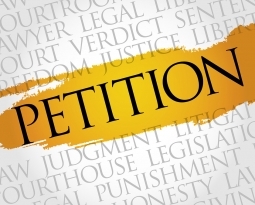Can text messages be used as divorce evidence?
Not too long ago, the New York Times described indiscreet text messages as “digital lipstick on your collar.” The provocative communications that Tiger Woods sent to his love interests made headlines, and similar indiscretions have impacted the lives of celebrities and political figures across the nation.
In family courts throughout New York state, text messages are being used as evidence with increasing frequency. Back in 2012, a survey suggested that over 80% of divorce attorneys had observed digital messages being introduced as evidence, and five years later, the trend hasn’t shown any signs of slowing down.
If you’re assuming that your personal text messages will always remain confidential, don’t. Once they’re sent, they can always come back to haunt you.
How your texts can affect your case
If your spouse has been unfaithful and you want to confront them with text evidence of the fact (for example, a disgruntled former paramour send their messages to you), then doing so may ultimately be irrelevant, as New York is a no-fault state when it comes to divorce. Adultery will have little to no impact on the case unless the texts prove that your spouse used marital funds to buy expensive gifts for their love interest.
Text evidence may be more effective when it comes to child custody matters. If you are fighting for custody of the kids and your spouse sends you a text that could reasonably be interpreted as hostile or threatening, then it may be used to support your contention that they have anger management issues that could prove detrimental to the well-being of the children.
The same principle works in reverse. If you want to convince a judge that your children should spend the majority of their time with you, then don’t let anger drive you to send a text that could later serve as ammunition against you. Text messages have an unfortunate tendency to be interpreted in a different way than you originally intended, so avoid sending anything even remotely inflammatory.
The admissibility of text messages
In many instances, the admissibility of text messages in a divorce action depends on how they were obtained. In this sense, the rules of evidence are similar to those in criminal cases. If you went on your spouse’s personal phone without their permission and extracted messages, then it is technically an invasion of privacy that could get you in a lot of trouble. Once these communications reach your phone, it is a different story.
All evidence introduced in a court action has to be authenticated, meaning that you must provide the court with information sufficient to prove that the texts are what you claim them to be: messages from your spouse. You can get certification from the phone company and bring your own phone into court, or print out the texts and serve them with a Notice to Admit. Another method is to have your attorney confront your spouse at trial with the texts and ask them to confirm that they sent these messages.
If you are facing an upcoming divorce that could potentially include text messages as evidence, then contact an experienced New York family law attorney. They will review these messages, help you determine which ones can best prove your case, and protect your rights. The lawyers of Eskin & Eskin, P.C. offer compassionate legal services to clients in the Bronx and New York City. Their office is located steps from the Bronx County courthouses and they offer free consultations to prospective clients. Call 718-402-5204 to learn about your rights in a divorce for family court case. Visit www.EskinAndEskinLaw.com for more information on the law and to contact our office.





